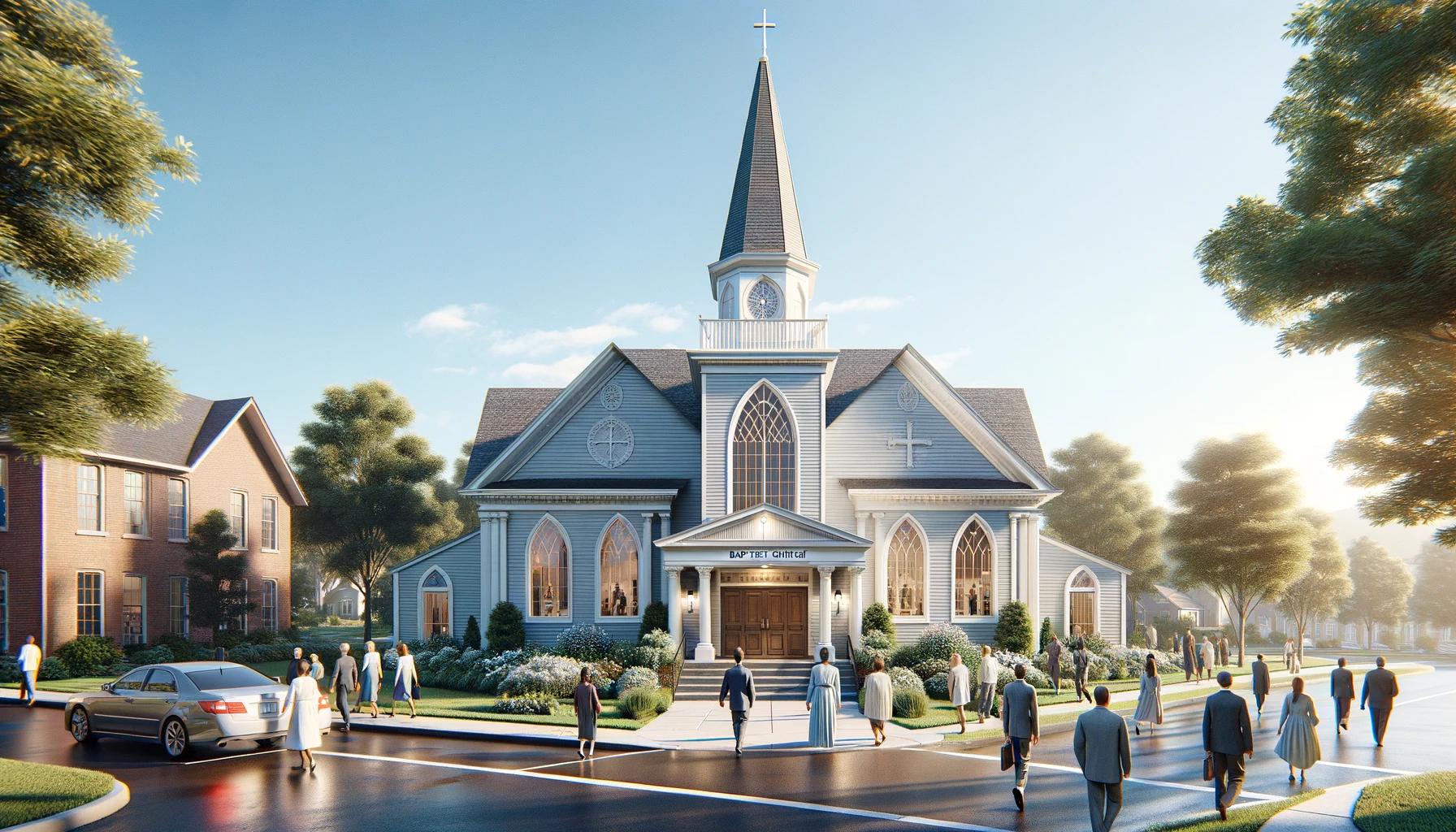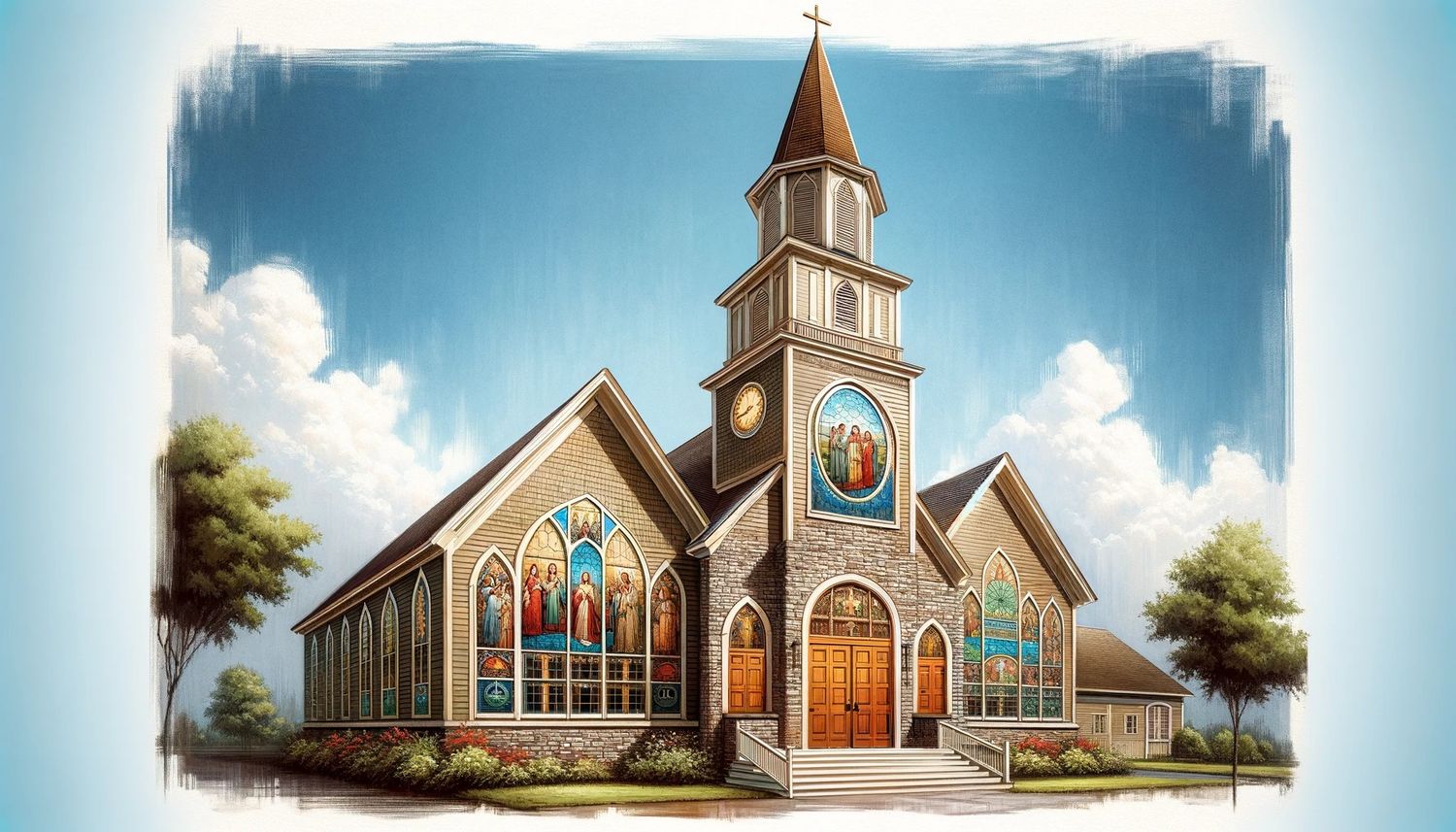Home>Theology and Spirituality>What Are The Two Spiritual Offices Of Baptist Church


Theology and Spirituality
What Are The Two Spiritual Offices Of Baptist Church
Published: February 23, 2024
Jason DeRose, Managing Editor at Christian.net, uses his expertise in religion and journalism to deepen understanding of faith's societal impacts. His editorial leadership, coupled with a strong academic background, enriches the platform’s diverse content, earning him recognition in both journalism and religious circles.
Discover the significance of the two spiritual offices in the Baptist Church and their role in theology and spirituality. Explore the rich tradition and teachings of this faith.
(Many of the links in this article redirect to a specific reviewed product. Your purchase of these products through affiliate links helps to generate commission for Christian.net, at no extra cost. Learn more)
Table of Contents
Introduction
The Baptist Church, with its rich history and deep spiritual traditions, holds two distinct spiritual offices in high regard: the office of pastor and the office of deacon. These offices play pivotal roles in the functioning and spiritual guidance of the church community. Understanding the significance and responsibilities associated with these offices is essential for appreciating the structure and spiritual foundation of the Baptist Church.
The office of pastor is a position of great honor and responsibility within the Baptist Church. Pastors are entrusted with the spiritual leadership of the congregation, providing guidance, support, and pastoral care to the members of the church. They are often seen as shepherds, leading and nurturing their flock with wisdom, compassion, and a deep understanding of the scriptures. The pastor's role extends beyond delivering sermons; they are also tasked with providing spiritual counseling, officiating sacraments, and fostering a sense of community and belonging among the church members.
In addition to the office of pastor, the Baptist Church recognizes the office of deacon as a vital component of its spiritual framework. Deacons are called to serve the church and its members through acts of compassion, support, and practical assistance. Their role is deeply rooted in the teachings of humility and service exemplified by Jesus Christ. Deacons often engage in charitable work, visitation of the sick and elderly, and providing aid to those in need within the church community. Their selfless dedication and commitment to serving others embody the core values of the Baptist Church.
The spiritual offices of pastor and deacon are not merely titles within the Baptist Church; they represent a sacred calling and a commitment to upholding the spiritual well-being of the congregation. These offices are integral to the functioning of the church, ensuring that the spiritual, emotional, and practical needs of the members are met with compassion and dedication.
As we delve deeper into the distinct roles and responsibilities associated with the office of pastor and the office of deacon, it becomes evident that these spiritual offices are foundational pillars that uphold the spiritual vitality and communal strength of the Baptist Church. Let us explore the significance and impact of these offices in further detail.
Read more: What Is Spiritual Baptist
The Office of Pastor
The office of pastor holds a position of profound significance within the Baptist Church, embodying the spiritual leadership and pastoral care essential for the congregation's well-being. Pastors are entrusted with the sacred task of shepherding their flock, guiding them through the spiritual journey with wisdom, empathy, and unwavering faith. Their role extends far beyond delivering sermons; it encompasses providing spiritual counsel, officiating sacraments, and fostering a sense of community and belonging among the church members.
At the heart of the pastor's responsibilities lies the delivery of sermons that inspire, educate, and uplift the congregation. Through the art of preaching, pastors convey the teachings of the Bible, offering insights that resonate with the daily lives and struggles of their parishioners. Their sermons serve as a source of spiritual nourishment, addressing moral dilemmas, providing comfort in times of adversity, and instilling hope for a brighter future.
In addition to their preaching duties, pastors are called to provide compassionate pastoral care to the members of the church. This involves offering guidance in times of personal crisis, conducting pastoral visits to the sick and elderly, and providing a supportive presence during significant life events such as births, marriages, and bereavements. The pastor's ability to empathize and offer solace in moments of distress fosters a sense of trust and spiritual connection within the congregation.
Furthermore, pastors play a central role in officiating sacraments, including baptisms, communion, and marriage ceremonies. These sacred rituals hold profound significance in the lives of church members, and the pastor's involvement ensures that these milestones are imbued with spiritual reverence and meaning. By presiding over these ceremonies, pastors strengthen the spiritual bond between the individual and the church community, reinforcing the sense of belonging and shared faith.
Beyond their spiritual duties, pastors are often instrumental in fostering a sense of community and fellowship within the church. They provide leadership in organizing and participating in various church activities, nurturing an environment where members can come together to worship, learn, and support one another. Through their dedication and vision, pastors cultivate a vibrant and inclusive community where individuals can grow in their faith and find solidarity in their spiritual journey.
In essence, the office of pastor is characterized by a profound commitment to spiritual leadership, pastoral care, and community building. Pastors serve as beacons of faith, guiding their congregation with compassion, wisdom, and a deep understanding of the scriptures. Their influence extends beyond the walls of the church, shaping the spiritual lives of individuals and enriching the collective experience of the Baptist community.
The Office of Deacon
The office of deacon holds a distinct and revered position within the Baptist Church, embodying the spirit of humble service and compassionate support for the church community. Deacons are called to exemplify the teachings of Jesus Christ through acts of kindness, generosity, and practical assistance, reflecting the core values of humility and selflessness.
At the heart of the deacon's role is the commitment to serving the church and its members with unwavering dedication. Deacons often engage in charitable work, reaching out to those in need within the community and extending a helping hand to alleviate suffering and hardship. Their acts of compassion and generosity serve as a tangible expression of the church's commitment to embodying the love and grace of God in the world.
In addition to their charitable endeavors, deacons play a vital role in providing support and care to the congregation. They are often involved in visitation of the sick, elderly, and homebound members of the church, offering companionship, prayer, and practical assistance. By extending a compassionate presence to those facing physical or emotional challenges, deacons embody the spirit of empathy and solidarity that lies at the heart of the Baptist faith.
Furthermore, deacons are entrusted with the responsibility of assisting in the practical functioning of the church, ensuring that the logistical and administrative needs are met with efficiency and care. This may involve tasks such as overseeing the distribution of communion, managing church facilities, or coordinating outreach programs. Through their diligent service in these areas, deacons contribute to the smooth operation of the church, allowing the spiritual life of the congregation to flourish.
The office of deacon is characterized by a profound commitment to serving others and nurturing the spiritual well-being of the church community. Deacons exemplify the virtues of humility, compassion, and selfless dedication, embodying the teachings of Jesus Christ through their actions. Their presence and service enrich the fabric of the church, fostering a culture of care, support, and communal solidarity that lies at the heart of the Baptist tradition.
In essence, the office of deacon stands as a testament to the transformative power of humble service and compassionate outreach, embodying the core values of the Baptist Church and enriching the spiritual lives of its members.
Conclusion
In conclusion, the spiritual offices of pastor and deacon stand as foundational pillars within the Baptist Church, embodying the core values of spiritual leadership, compassionate service, and communal support. The office of pastor represents the guiding shepherd, providing spiritual nourishment, pastoral care, and fostering a sense of community within the congregation. Their role extends beyond delivering sermons, encompassing the sacred responsibility of officiating sacraments and providing empathetic support during pivotal life events. The pastor's influence permeates the fabric of the church, shaping the spiritual journey of individuals and nurturing a vibrant and inclusive community.
Similarly, the office of deacon embodies the spirit of humble service and compassionate outreach, reflecting the teachings of Jesus Christ through acts of kindness, generosity, and practical assistance. Deacons play a vital role in extending support to the church community, engaging in charitable work, providing companionship to the sick and elderly, and ensuring the smooth functioning of the church's logistical and administrative needs. Their selfless dedication and commitment to serving others enrich the communal life of the church, fostering a culture of care, support, and solidarity.
Together, the offices of pastor and deacon form a harmonious partnership, each contributing to the spiritual vitality and communal strength of the Baptist Church. Their collective efforts create a nurturing environment where individuals can grow in their faith, find solace in times of need, and experience the transformative power of communal solidarity. The pastor and deacon, through their distinct yet complementary roles, exemplify the essence of servant leadership and selfless dedication, inspiring the congregation to embody the teachings of love, compassion, and grace.
As we reflect on the significance of these spiritual offices, it becomes evident that they are not merely titles within the church hierarchy; they represent a sacred calling and a commitment to upholding the spiritual well-being of the congregation. The pastor and deacon, through their unwavering dedication and compassionate service, embody the timeless values that define the Baptist Church, enriching the lives of its members and fostering a community rooted in faith, love, and solidarity.















